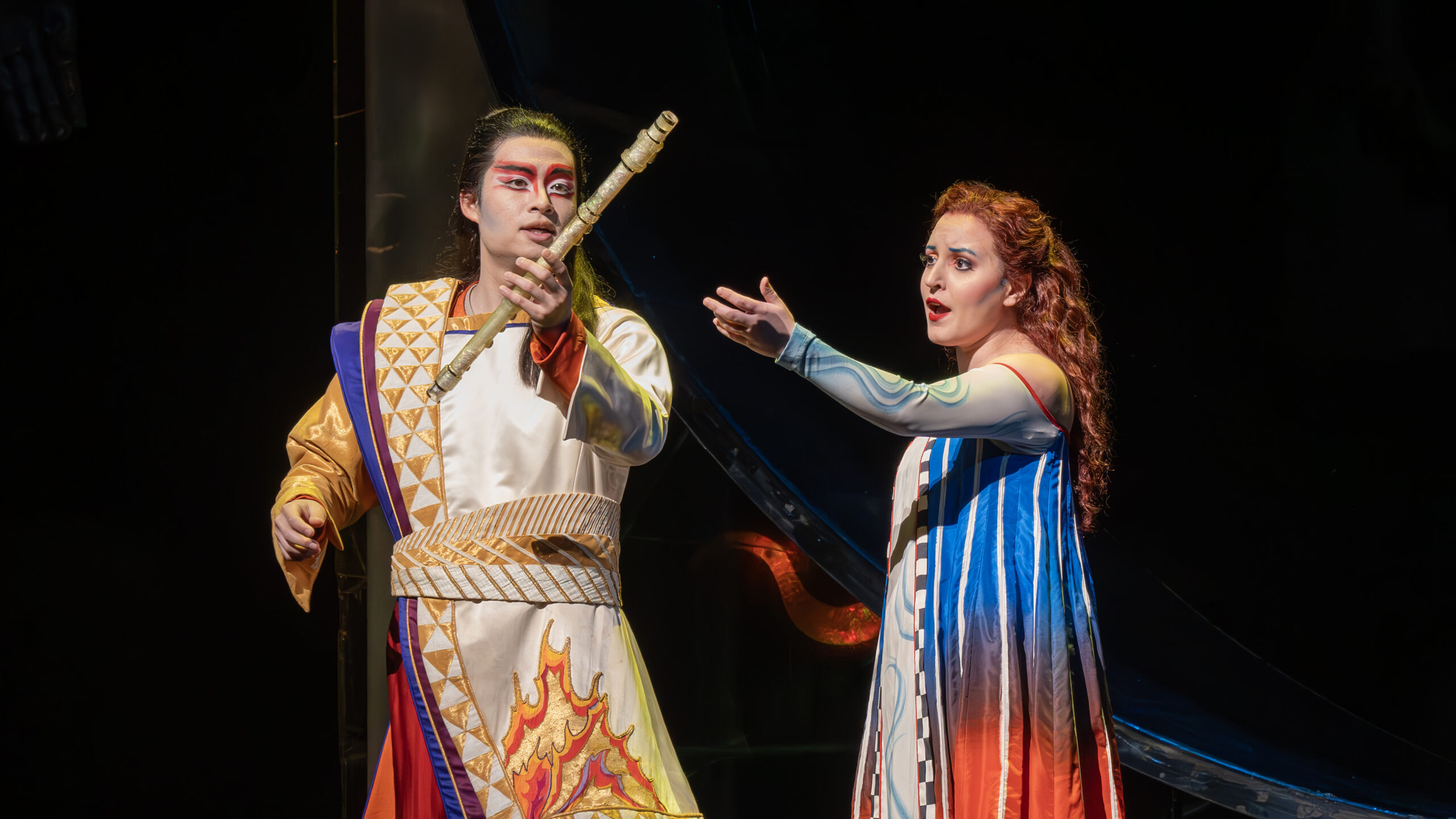
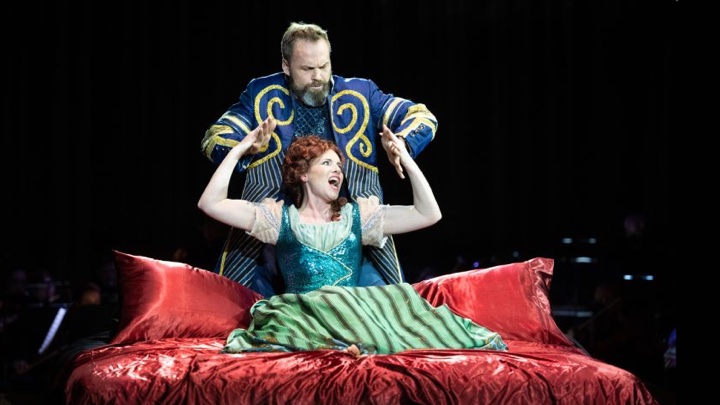
I’ll admit, I was skeptical—I have been burned by director Anne Bogart before (her Alcina in Washington was one of the worst productions I have ever seen), and her depressingly defeatist quote in the program note, that Bluebeard is the most “male-centered opera ever written,” did not make me prone trust her more. Yet out of Bluebeard she mines something startlingly intimate, genuinely subversive, and gracefully musical. And you won’t even miss the doors.
The impact may not have been so strong had it not been so visibly collaborative and anchored by such strong performances at its center. Ryan McKinny and Naomi Louisa O’Connell, uncommonly exposed by a reduced (yet nonetheless textured) orchestration by Eberhard Kloke and thrust stage, show both comfort and authority in what are role debuts for both. Instead of opening doors, they work together to remove suggestive coverlets from a centrally located bed over which a huge boulder looms.
Judith’s unhinged insistence on wandering inside the drippy phallus of Bluebeard’s castle is flipped as she draws a progressively destabilizing energy and eroticism from the revealing of each new “room” in her new husband’s home.
As Judith, vulnerable yet invigorated, unabashedly traipses through her husband’s mind, he is gradually, physically undone; Judith is finally subsumed into the ghostly gang of Bluebeard’s wives (who have been wafting around in period dress—by Trevor Bowen—since the beginning of the evening) while Bluebeard cowers, stripped nearly naked, at the foot of the bed.
Sex, violence, and sexual violence occupy extremely similar spaces alongside psychological violence in Bogart’s take on the story, to say nothing of the marital dimension. The program credits an intimacy director (Angie Jepson) who must have been kept quite busy—McKinny and O‘Connell are frequently in contact with one another, from tender embraces to strangulating holds.
But even as one started to feel voyeuristic with the access given to the characters’ minds, Bogart reels you back into the world of stylized symbols (rope, flower petals, and, most impressively, a stage-sized swath of silky fabric that becomes a gently ebbing lake of tears) that read with crispness and immediacy.
These are also the qualities O’Connell brings to Judith—though the role magnifies the natural break in her registers, her delivery of the English translation of the libretto has an easiness and a self-possession that befits her manner onstage. Her basic sound, an evenness cut with a prominent vibrato and a security that extends up to the decisively hit fifth-door high C, has a complexity that complements her subtly empowered take on the role.
In an effort to correct the male-centeredness Bogart detects in the opera, the opera’s spoken prologue was jettisoned and the evening was framed to somewhat underwhelming effect by performances of Alma Mahler’s “Vier Lieder,” which range from Straussian opulence (especially as orchestrated by Julian Reynolds) to Schoenbergesque sprechgesang. O’Connell, who is here credited as having provided the translations for the songs, was both dreamlike and steely.
And if the evening’s overall setup takes a rose-colored view of Alma Mahler’s music and muse status (the festive cabaret that preceded the performance was allegedly inspired by her various salons), O’Connell’s take is much more gratifyingly complex. She uses Mahler’s music and words from her diary to bridge between the music’s idealism and the opera’s paradigmatic darkness.
Yet the success of the opera is as much to McKinny’s credit at it is to hers—his inky, somewhat buzzy bass-baritone melts from impenetrable to utterly destroyed as his declamations become increasingly desperate and he exudes gravitas. The austerity of his sound lent a poetic weight to the descriptions of his echoey castle and he and O’Connell seemed both physically and vocally at ease with one another.
They were held together by David Angus’s economical take on the score; while occasionally dancelike rhythms emerged and the reeds sounded especially jazzy, the read on the score was largely weighty yet unmajestic, firm without being imposing. It’s to his credit that the singers were never covered in the relatively small space, but an opera like Bluebeard only benefits from a more visionary hand in the orchestra pit.
At a concise hour and a half, BLO’s first production since its backwards bohème in the fall packed a memorable wallop. Its season of reclaimed and reoriented narratives will end in May with the New England premiere of Rhiannon Giddens’s and Michael Abel’s Omar.
Photos by Liza Voll
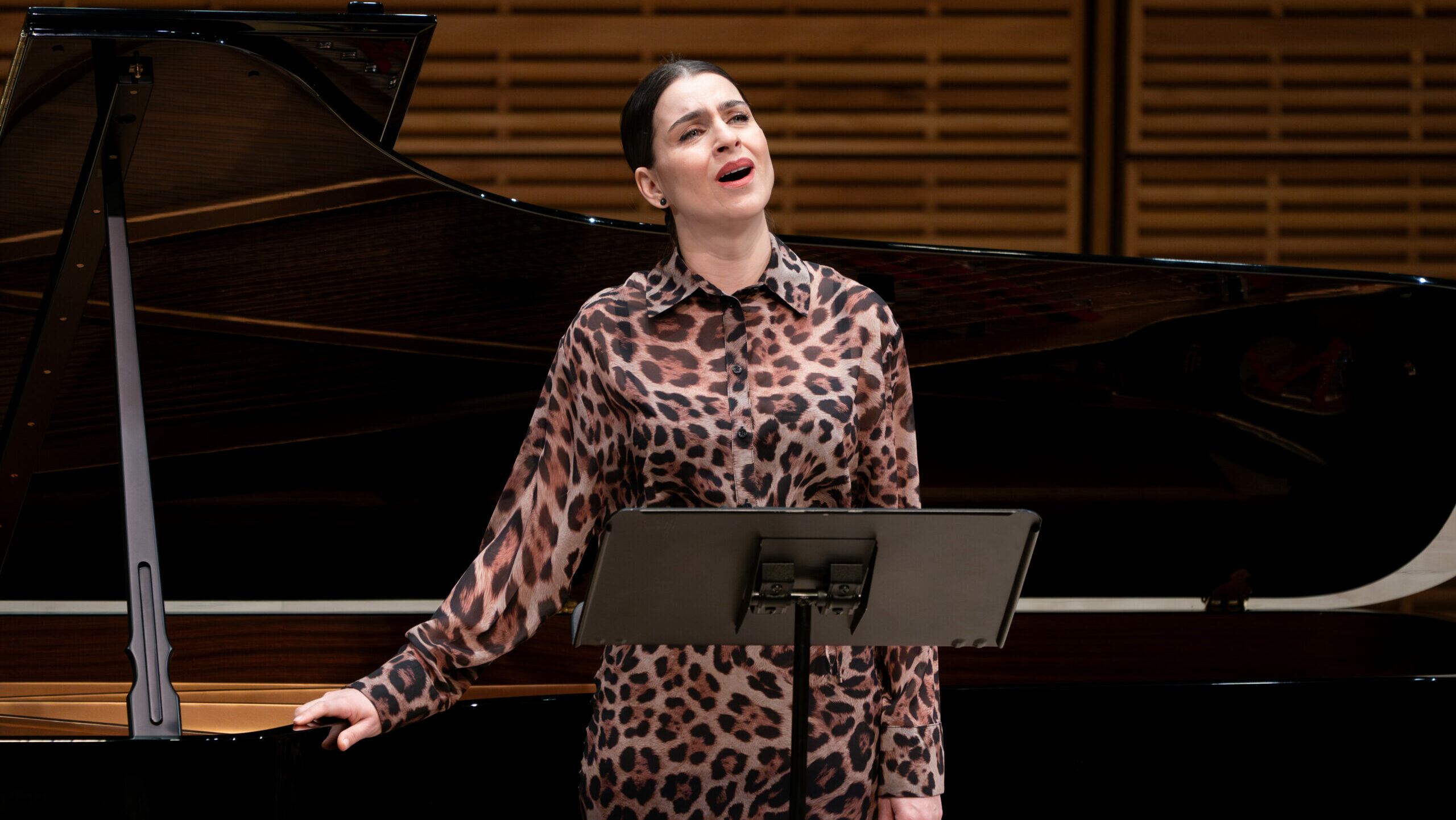
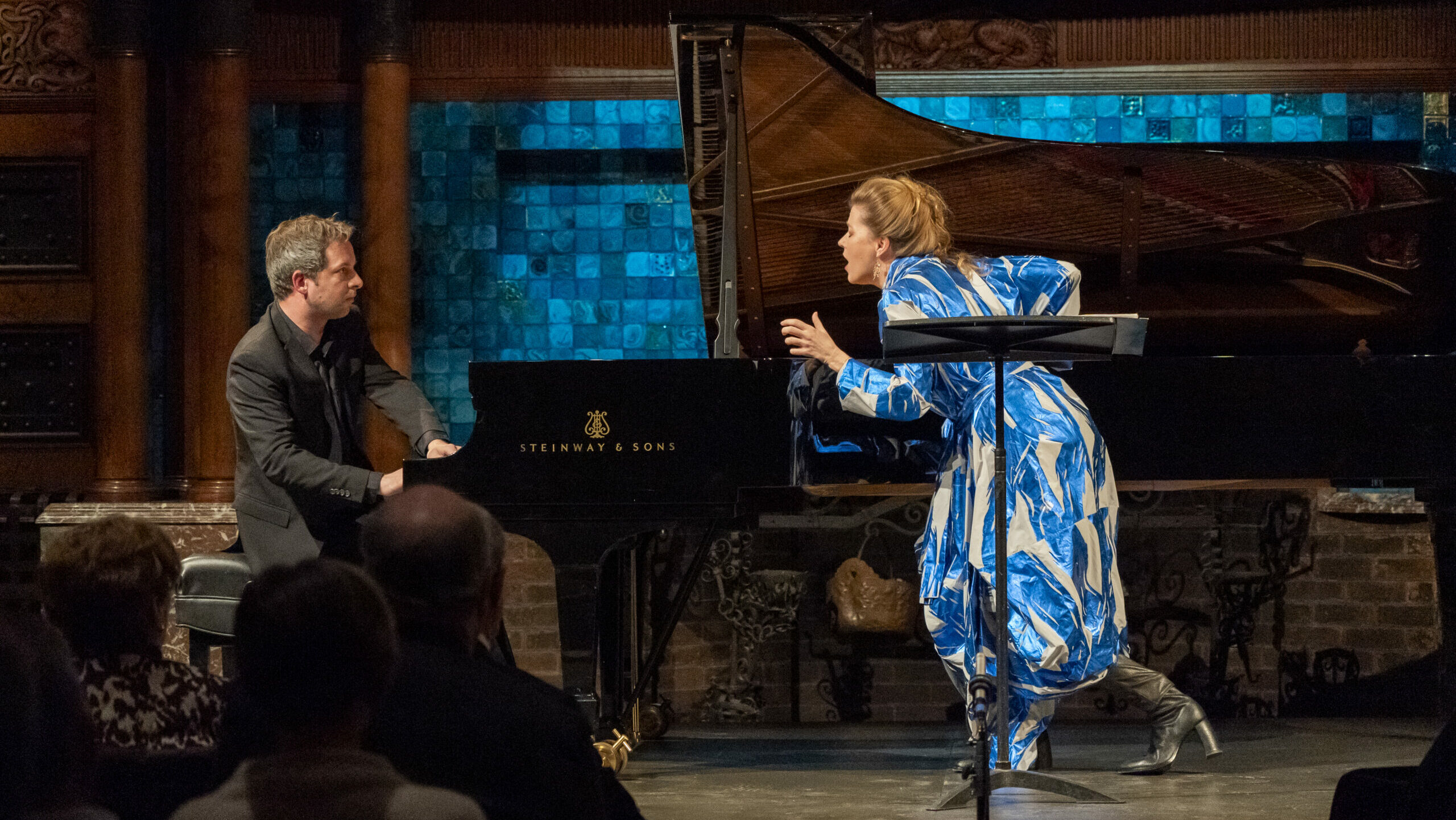

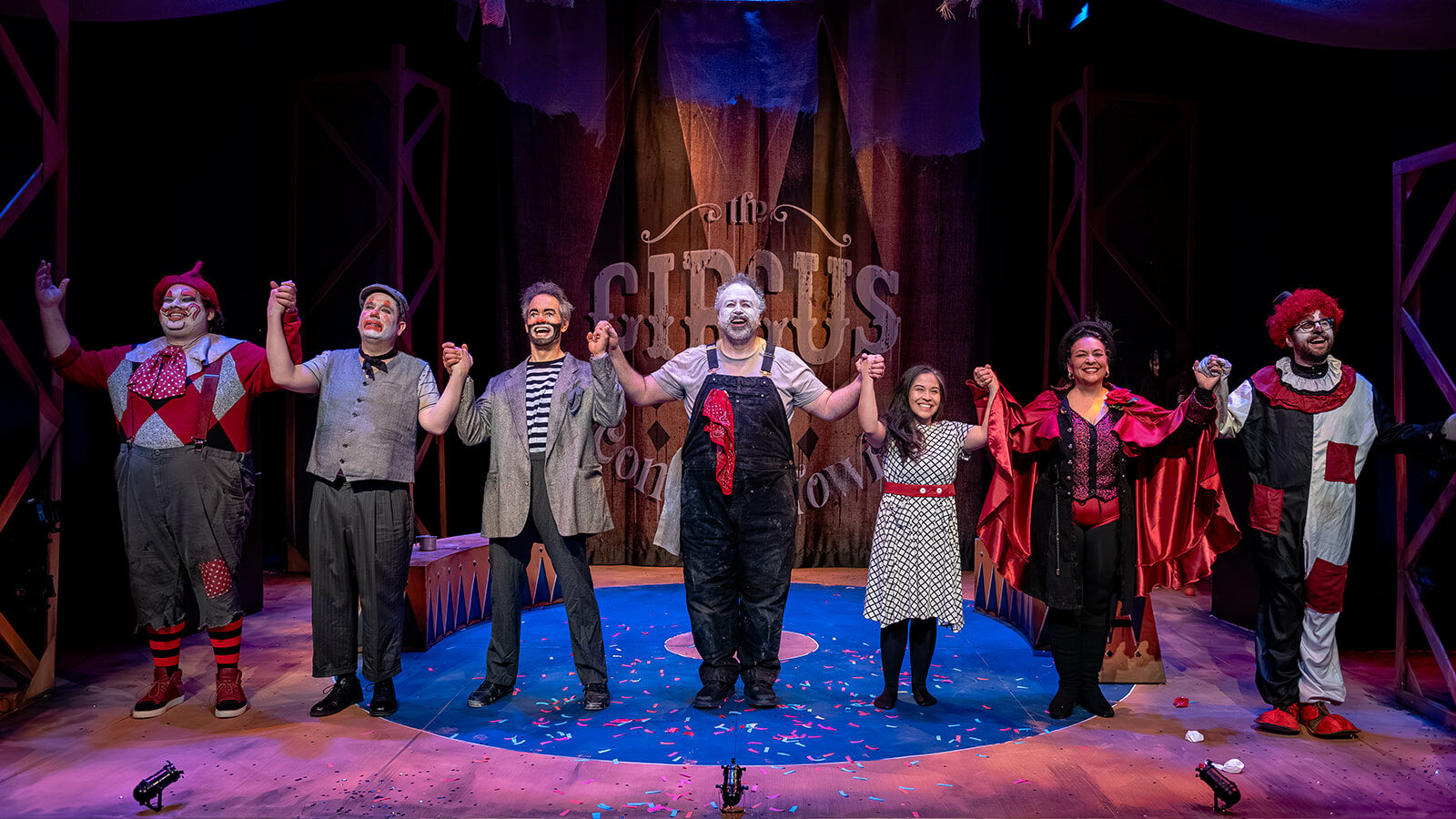




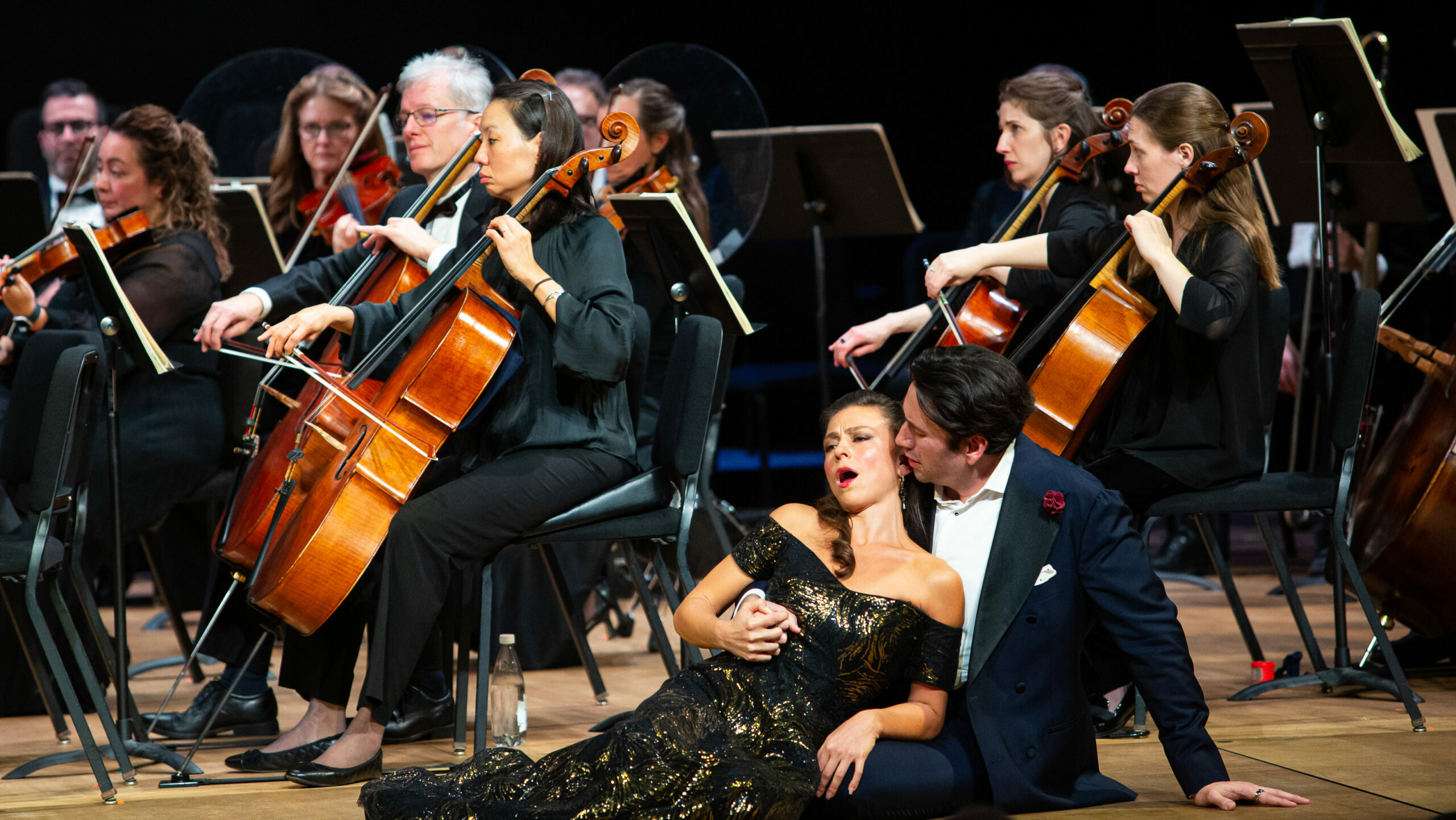
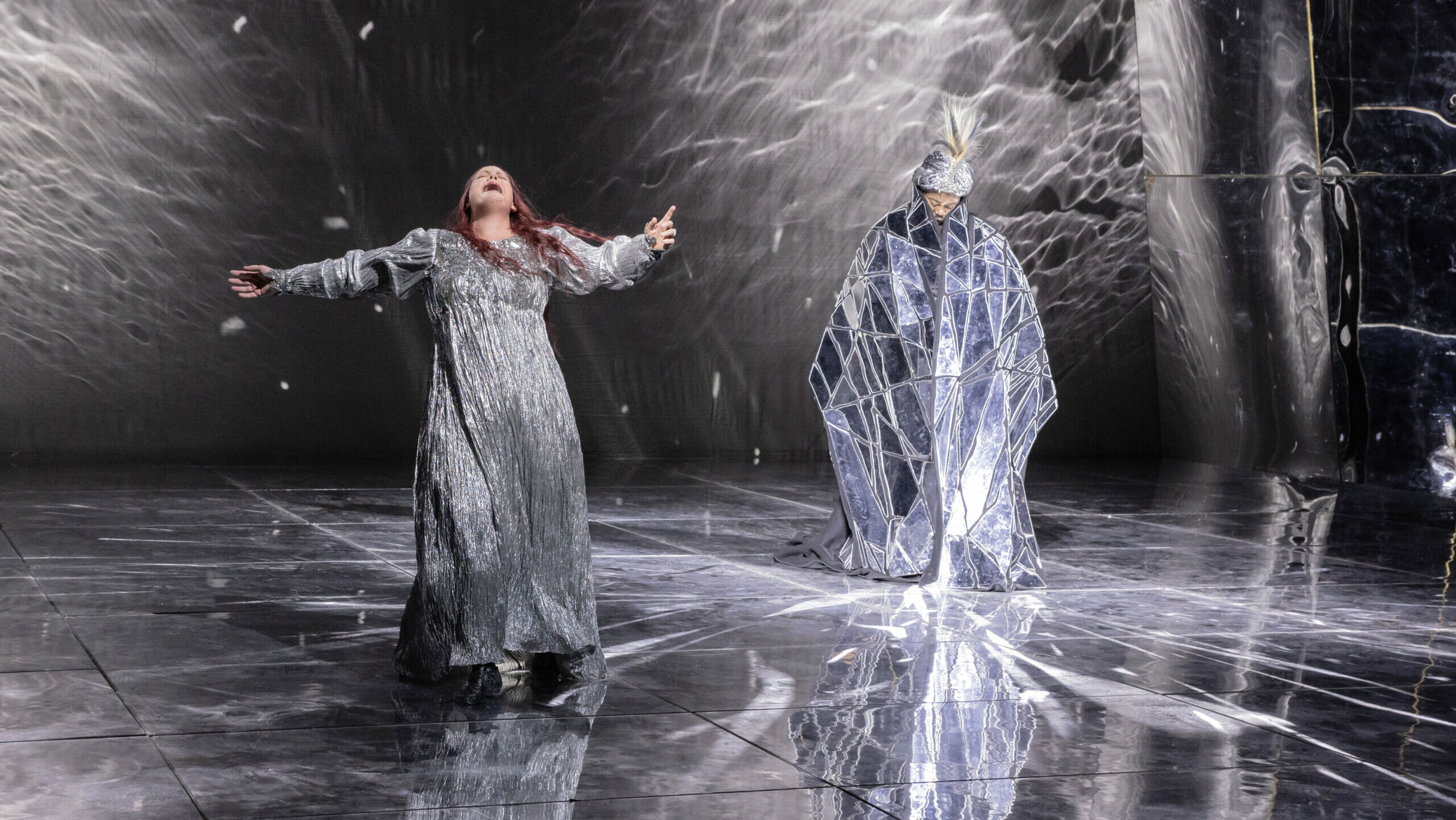
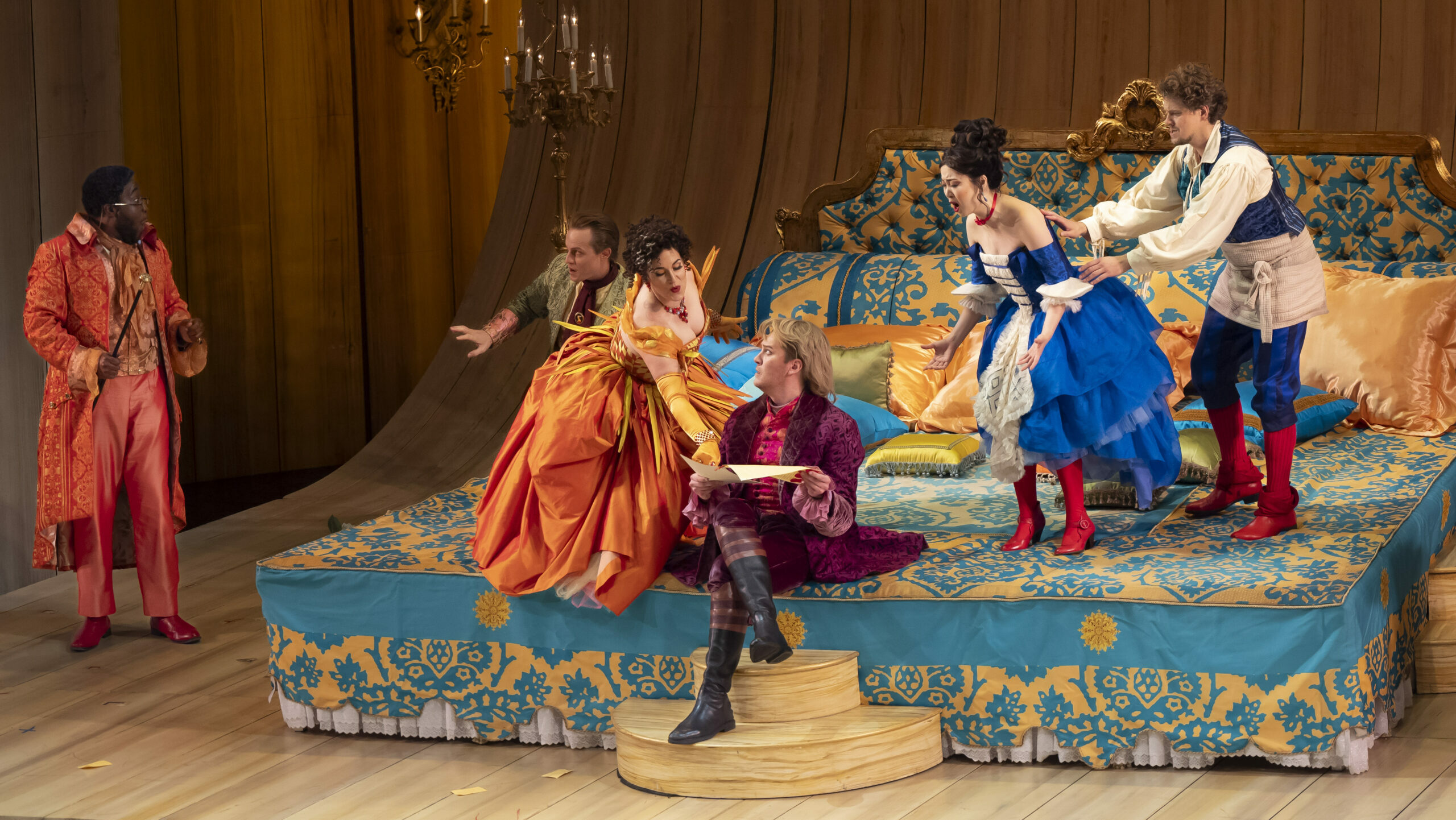
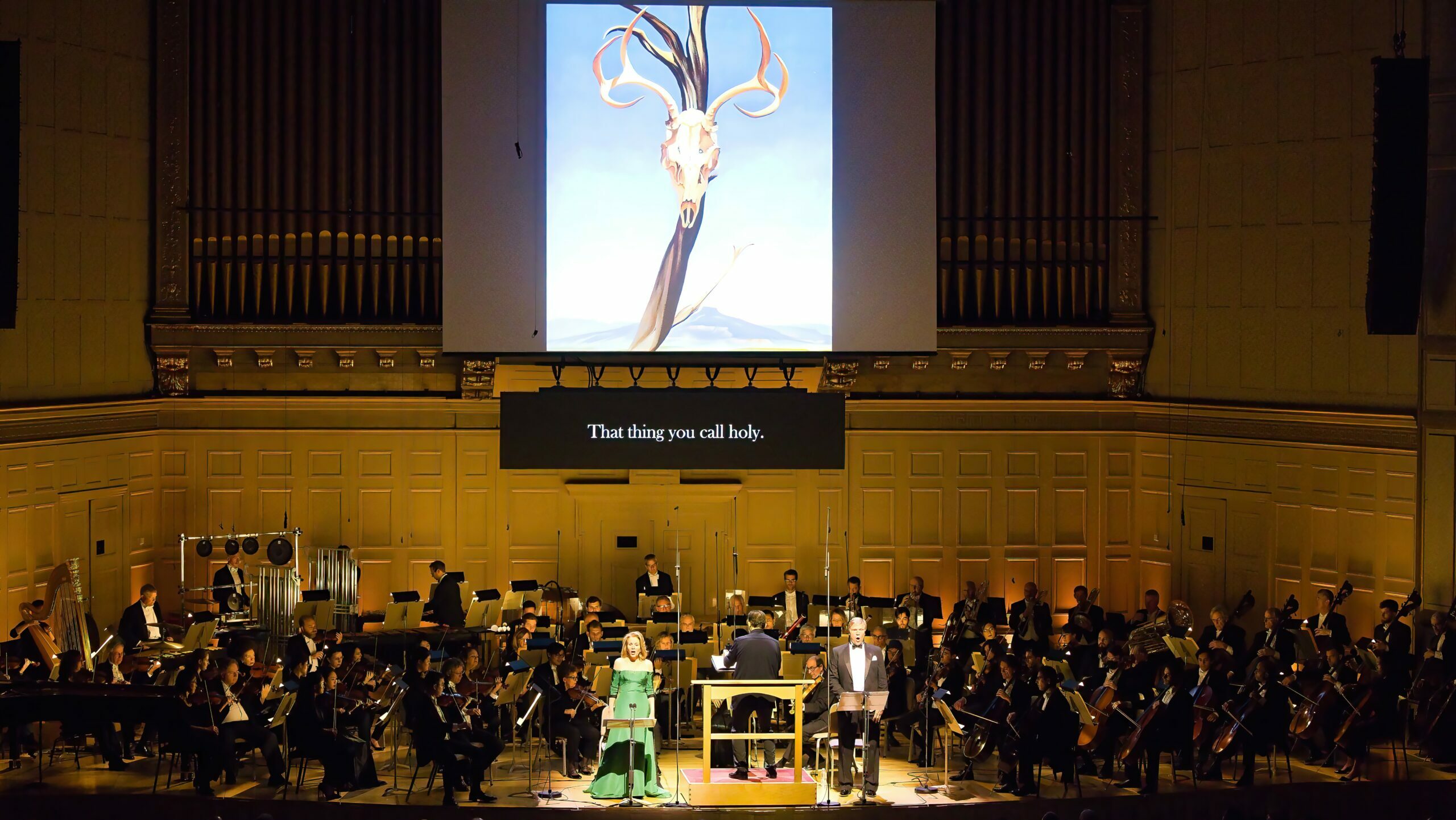
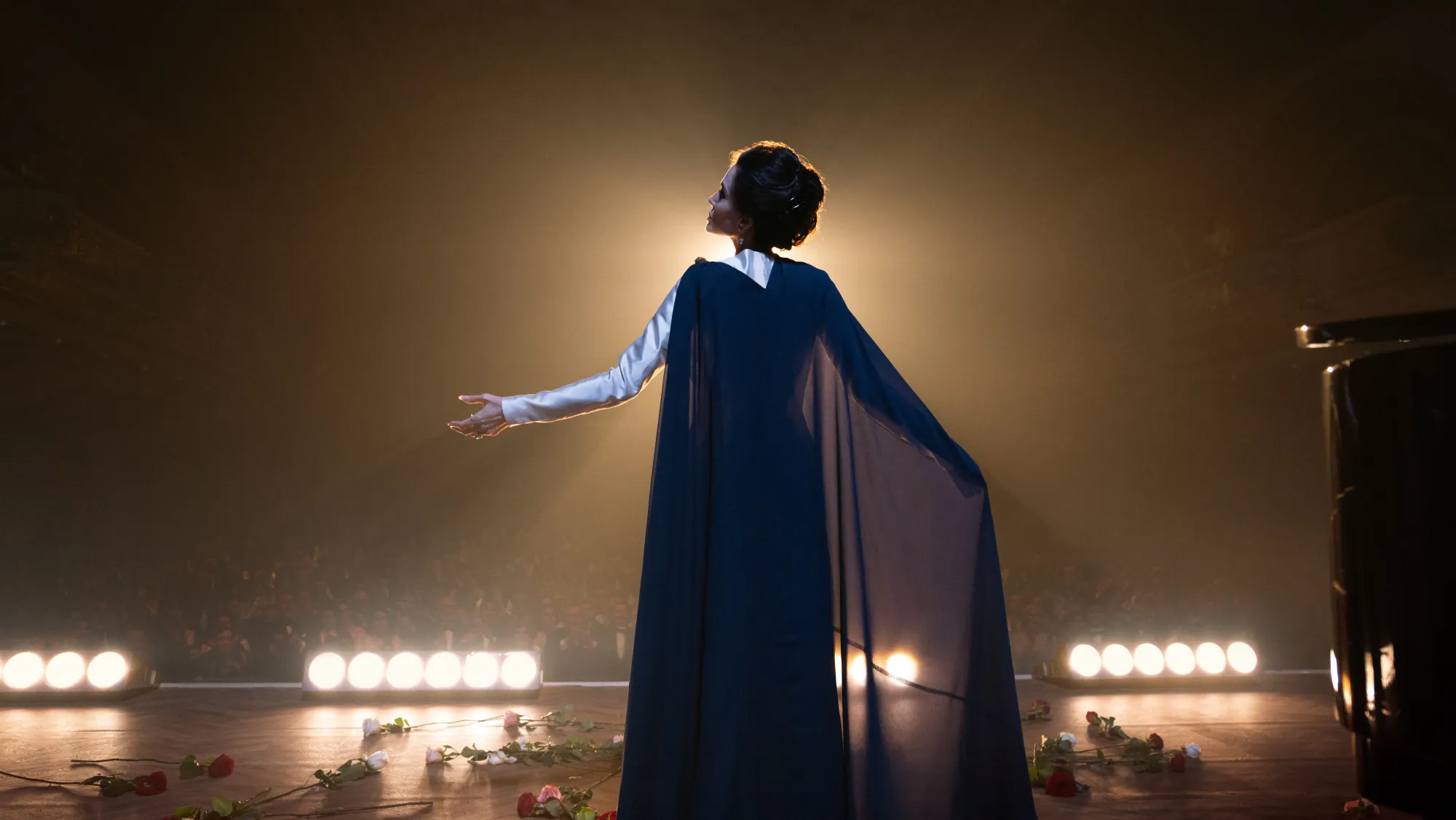
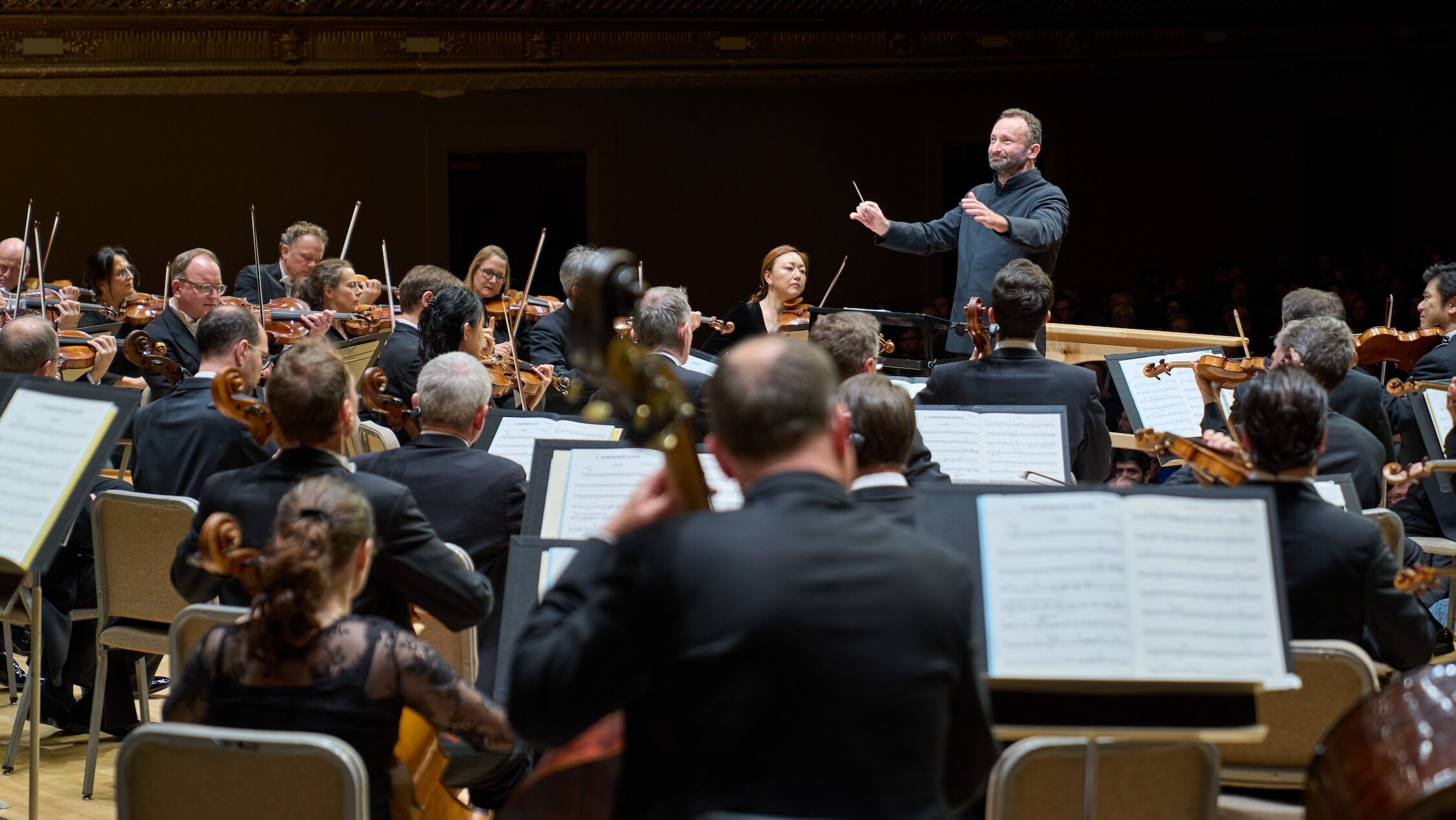
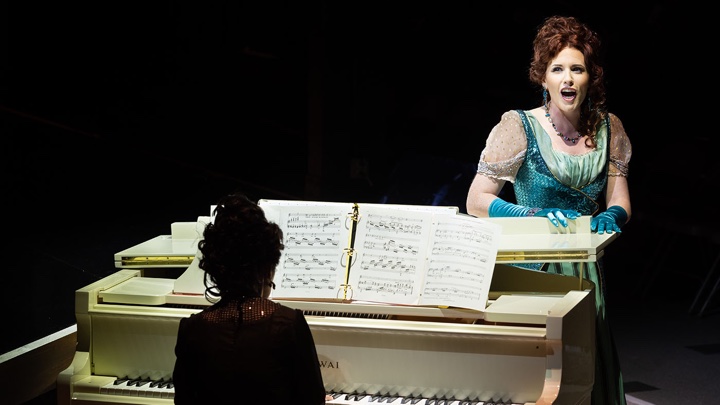
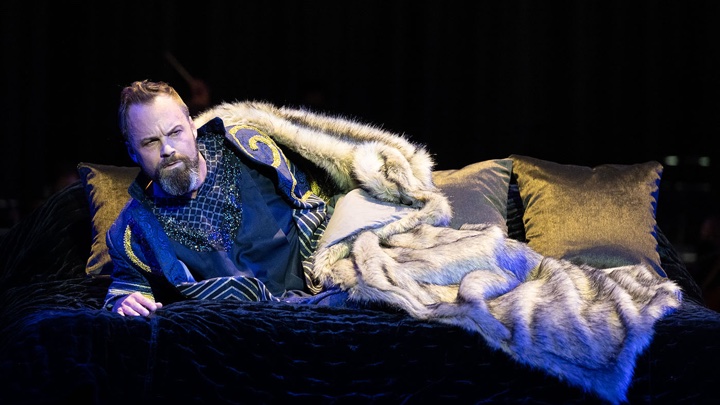
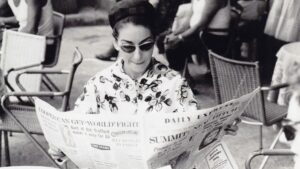
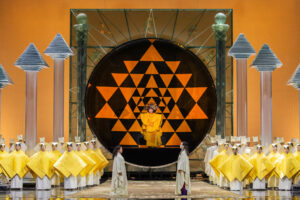
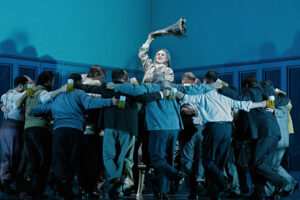

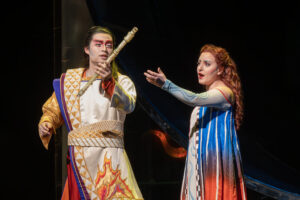

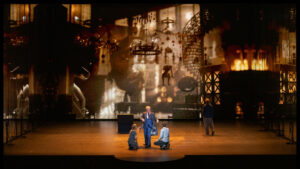
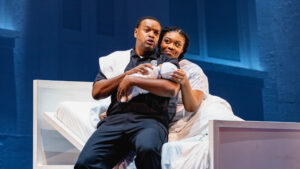



Comments